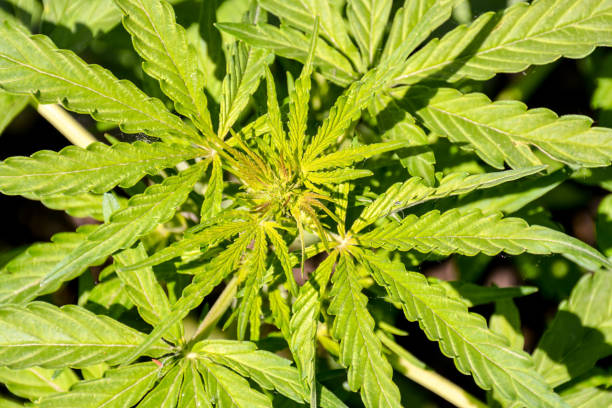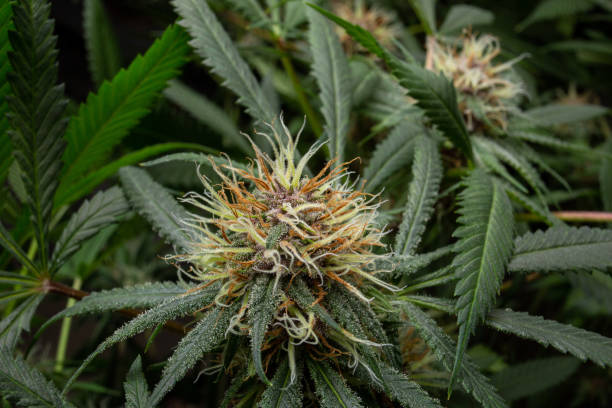Introduction
Marijuana or cannabis is the dried seeds, flowers, stems, and leaves from the cannabis plant (Cannabis indica or Cannabis sativa). It is composed of mind-altering compounds such as THC (tetrahydrocannabinol) which is the major psychoactive agent in cannabis. THC stimulates brain cells to release dopamine, creating a feeling of euphoria, otherwise known as “getting high.”
According to the 2020 world drug report by the UN released on the 27th of June; it is highlighted that marijuana or cannabis remains the most used drug worldwide with more than 4% of the world’s population (i.e., 209 million people) between ages 15 to 64 consuming marijuana.
Proposals and requests have been made to legalize medical marijuana, which has been done in some states in the US, but there are a lot of concerns and speculations as to the effects legalizing these drugs will have on individuals and communities at large if it becomes legalized worldwide.

Marijuana and its effects
Marijuana, grass, dope, and weed, all different names for the same drug gotten from the cannabis plant, are consumed differently. It can be vaped, added to food and drinks, or used conventionally by smoking. This makes it the ideal drug for recreation and pleasure purposes.
Consumption of marijuana is known to cause effects like
- Hallucinations
- Short term memory
- Anxiety
- Increased chances of paranoia
- Heightened senses
An addiction that can cause the consumer to be physically dependent on marijuana·

Lung irritation, amongst others.
With this being said, marijuana also has medicinal effects. In this case, ‘medical cannabis has been said to help with conditions like:
- Anxiety
- Pain
- Nausea, an effect of chemotherapy
- Dravet syndrome or Lennox- Gastaut syndrome·
- Stiff muscles or muscle spasms
- Weight loss or loss of appetite by inducing hunger
- Insomnia and sleep apnea
Medically, only three conditions have been scientifically proven to be treatable with medical cannabis; chronic neuropathic pain in adults, multiple sclerosis, and nausea as a result of chemotherapy.
Difference between medical cannabis and recreational cannabis
Medical cannabis and recreational cannabis refer to the same drug with different legal standing and usage.
Recreational cannabis or marijuana is the kind of cannabis stated by law that people can only buy over the age of 21 years. It is handled like alcohol and sold only at designated adult-only stores in approved states
Medical marijuana, on the other hand, refers to the type of cannabis that can only be purchased through a state medical program. It is a kind of cannabis that is solely consumed for medicinal purposes and according to a doctor’s advice and prescription.
However, neither medical cannabis nor recreational cannabis has been federally legalized, except in a few states like California, Washington, New York, Nevada, Alaska e.t.c.
Effects of legalization of marijuana in some states in the US
The purpose of legalizing marijuana in the US was to reduce the rate of drug-related crimes in terms of possession, use, and accessibility by removing penalties and prison risks, and encouraging the use and study of medical cannabis, which cannot be done when the drug is deemed illegal.
Not quite everyone agrees with this sentiment as it was viewed that legalizing marijuana could increase the level of crime rates affects educational achievement among teenagers and youth commands increase rates of traffic accidents especially due to people driving under the influence of marijuana, and increased addiction rates.
Currently, post-legalization of marijuana, there has been increased records in consumption of both medical cannabis and recreational cannabis, especially amongst people ages 21 years and above. It was also discovered that persons between 12 to 20 years of age are at most 5 to 6% likely to try out marijuana for the first time after it was legalized solely for medical use.
While the legalization of recreational and medical cannabis helped reduce adverse effects and deaths brought about by alcohol, opioids, and other illicit drugs, the risk of addiction and abuse remains constant in the US. The number of people treated and admitted due to cannabis dependence continues to rise. Click here to read more about Is It Beneficial to Give CBD Oil to Dogs?

The effects of cannabis dependency span various mental disorders, from depression to psychosis. However, it is argued that the legalization of cannabis itself is not the sole factor for this condition.
On the positive side, users of cannabis reported improved relaxation, stress reduction, and the increased social ability for food, nature, and music. It also indicated that the knowledge and preparedness people had to pay for and use cannabis reduced the harm levels associated with drugs in terms of removal of penalties and prison risk. There is also scientific backing for the use of medical cannabis in relieving muscle spasms in multiple sclerosis, reducing nausea in people undergoing chemotherapy, and pain. It is important to note that the medical side of medicinal cannabis has not been fully explored yet.
Conclusion
From the viewpoint of reducing crime rates and criminal records due to drug use and possession, use of medical cannabis for the sake of treating certain medical conditions and to discover more beneficial ways in which marijuana can be used, to the means of revenue generation, it is understandable as to why proposals have been put in place for marijuana to be legalized and why some states legalized it.
Legalizing marijuana will allow each state control over the supply, quality, quantity, cost, and flow of marijuana and thereby reducing the risk and harm posed by low-quality and contaminated marijuana produced and supplied by the illicit cannabis market. It will also serve as a great way of eradicating the black marijuana market.
However, the risks outweigh the benefits of legalizing marijuana in the long run. In a situation where people are free to purchase marijuana anytime they want, there is a very high chance of drug abuse, cannabis dependability, and drug-induced crimes like assault, theft, and traffic negligence. The probability of increased consumption of marijuana amongst adolescents and teenagers is also something to be concerned about as this poses a high risk of a decline in academic productivity.
In a community where the adults are at risk of suffering a decline in productivity due to cannabis dependency, the teenagers are unable to yield academic productivity, and crimes are committed under the influence of marijuana, it is safe to say that the community is one set for doom. Visit https://www.ncbi.nlm.nih.gov/pmc/articles/PMC8223341/ to read about Cannabidiol use and effectiveness: real-world evidence from a Canadian medical cannabis clinic.